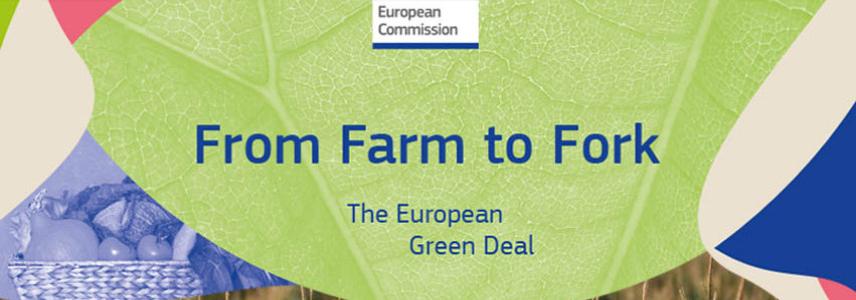European sustainability strategy goals: Less pesticide use and more organic production

In May 2020, the European Commission started officially using a set of specific measures. These may impact the supply from developing countries. The measures include a reduction in the use of pesticides and an increase in organic production.
European sustainability strategy
Sustainability is one of the most important topics on the official European agenda. The European Union has put a set of policies and actions in place. The European Green Deal includes these actions and policies. The European Green Deal aims to make the European economy sustainable and climate-neutral by 2050. The action plan also includes a Farm to Fork Strategy. This strategy aims to make food systems fair, healthy and environmentally friendly.
The Farm to Fork Strategy aims are:
- Sustainable food production;
- Sustainable food processing and distribution;
- Sustainable food consumption; and
- Food loss and waste prevention.
Different actions will be carried out to help achieve these aims. Policies will mostly focus on food-related activities in Europe. Still, Europe cannot be sustainable if the whole supply chain is not sustainable. The European Union is trying to make sure that all its bilateral trade agreements include a section on sustainability.
Decreasing pesticide residues
The European Commission has already lowered pesticide residue limits. It also frequently bans pesticides that negatively affect human health. For example, in 2020, there were around 60 different changes to the European legislation on Maximum Residue Levels (MRLs). Imported food must follow new MRL limits. This means that you need to closely monitor the ongoing reviews of pesticides that are relevant for your products.
As a part of the Farm to Fork Strategy, the European Commission is taking extra action to reduce the use and risk of chemical pesticides and more hazardous pesticides. It wants to reduce the use of these by 50% by 2030. One of the first steps to achieve this goal is to change the Sustainable Use of Pesticides Directive. European farmers should be encouraged to use safe, alternative ways of protecting harvests from pests and diseases. Some alternatives are:
- Crop rotation;
- Mechanical weeding; and
- Using non-harmful plant protection products and techniques.
This year, we updated our buyer requirements study for processed fruit and vegetables. It includes many links to websites where you can check on the developments in Europe, including pesticide residues.
Organic production and consumption in Europe
Another aim of the Farm to Fork strategy is to increase organic farming within Europe. The goal is for at least 25% of Europe’s agricultural land to be organically farmed by 2030. To achieve this, the European Commission is developing an Action Plan for organic farming. This will help Member States stimulate both supply and demand for organic products.
The expected increase in organic production in Europe is not directly related to the import of organic products. Still, the overall consumption of organic food is expected to increase. This means that demand for imported organic processed fruit and vegetables will continue to increase. Organic food currently represents 2% of all European food imports. We expect this share to increase. Of organic products, tropical fruits, nuts and spices have the highest import share.
Do you want more information about developments in the European market? Read our new study on trends on the European processed fruit and vegetables market.
Autentika Global wrote this news article for CBI.
Stay informed
To stay informed on the latest developments in the processed fruit and vegetables sector, subscribe to our newsletter.